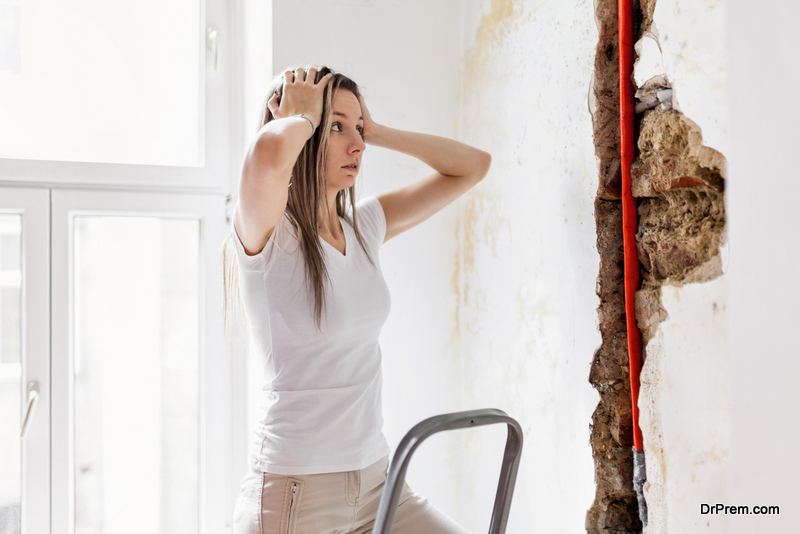The average homeowner doesn’t spend much time thinking about the pipes in his home – until something goes wrong. And while fixing one pipe is no big deal, older homes often need total repiping. Where does your house currently stand?
What Does it Mean to Repipe a House?
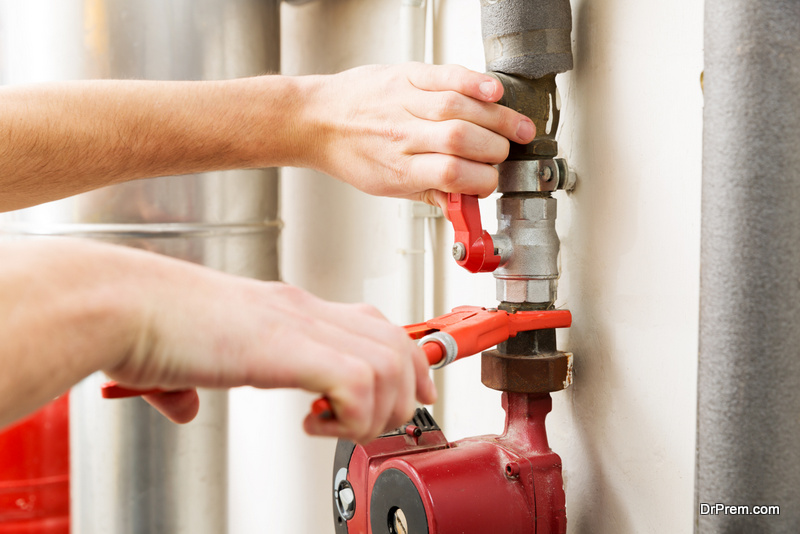
Nothing lasts forever. When it comes to the visible aspects of your home, this much is clear. Things like flooring, windows, and appliances deteriorate over time and must be replaced with something newer. And whether you can see it with your own two eyes or not, the pipes in your home are also aging.
Pipes gradually experience corrosion, rust, and decay. If you don’t deal with these problems and replace your pipes, you run the risk of messy and costly leaks. Over time, these leaks can lead to serious water damage, mold, mildew, and possibly even the infiltration of raw sewage into your basement or crawlspace.
Replacing the old pipes in your house, which is essentially what it means to repipe a house, isn’t a casual project. It can be expensive, time-consuming, and invasive.
In older homes, you may find galvanized steel pipes. They tend to last somewhere between 20 and 50 years before they gunk up, corrode, and start to leak. You may also have cast iron drain lines, which can last upwards of 75 years, but are prone to rusting.
Today, most pipes and drain lines are replaced with either copper pipe or PVC. Both are shown to last and provide a superior flow of water into and out of your home.
The cost of repiping a home depends on the size of the house, the number of bathrooms, and the ease of access to the pipes. The more exposed your pipes are, the less expensive it’ll be. The more pipes you have behind plaster walls and other difficult to reach locations, the more it’ll cost you.
The 5 Signs Your House Needs Repiping
Most homeowners are unaware of the plumbing in their home until there’s an issue. Pipes do their job behind the scenes and don’t get much consideration until something bad happens. The question is, how do you know when you have a minor isolated problem, versus when there’s a major issue?
When it comes to repiping, here are some telltale signs that you need to make the investment sooner rather than later:
Age of the House
Depending on the material, supply lines can last quite a while. However, they do deteriorate over time. If your home was built more than 50 or 60 years ago and has never had the original plumbing replaced, repiping may be necessary in the next few years. If nothing else, it’s something that should be on your radar.
Discolored Water
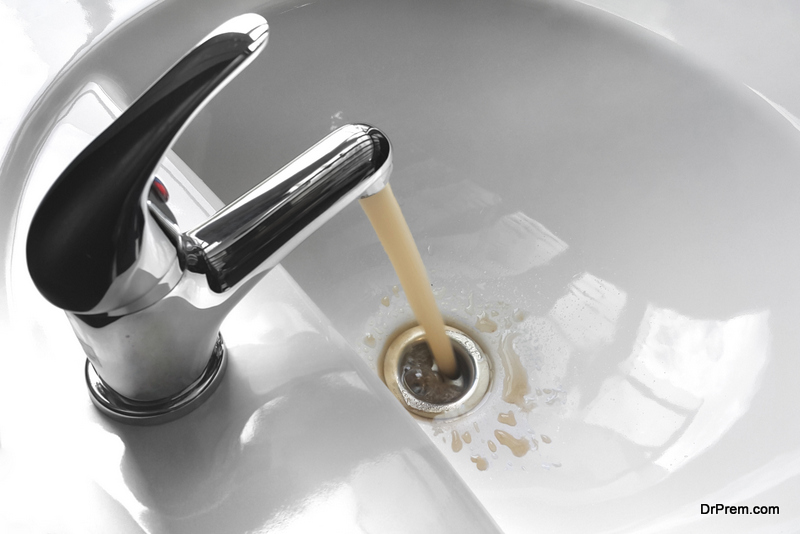
“If your water runs colored when you first turn it on, but clears up after running it for a few seconds, is a sure sign you have a problem with your piping,” Flood Brothers Plumbing explains. “If your water has a red cast, that is also often an indicator of rusty pipes. Brown, reddish or yellow colored water coming out of your faucets means your water is mixing with rust.”
This is one of the first and most obvious signs that your pipes need to be replaced. If you notice colored or tinted water, you should call a plumber right away.
Poor Water Pressure
Water pressure can tell you a lot about your plumbing. If you have decent pressure throughout the house, but low pressure on one faucet, then it’s likely that you have an isolated problem with the faucet itself. But if you have low water pressure throughout the home, it could be a sign that your entire plumbing system is compromised and needs replacement.
Visible Corrosion
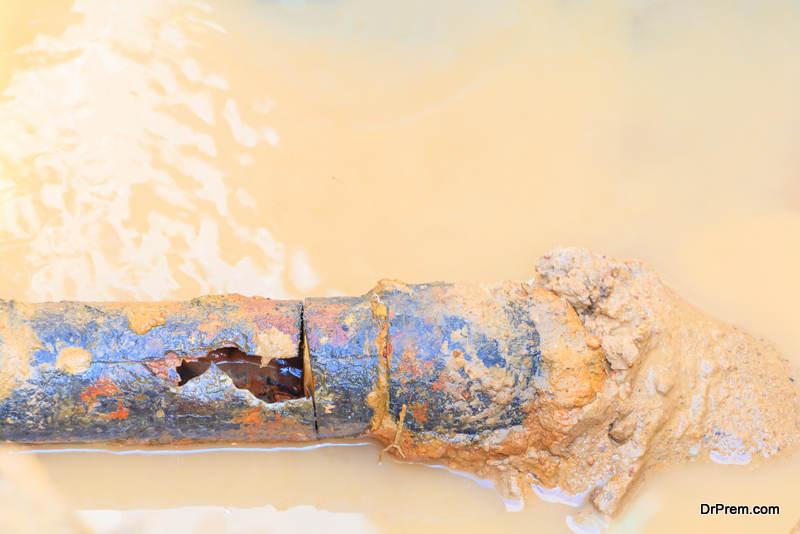
Many of your home’s pipes will be exposed (either in a basement or crawlspace). If you notice signs of corrosion (or other visible indications of aging), this shows your pipes are no longer operating at full strength and that leaks could soon result.
Noisy Pipes
Noisy pipes don’t always mean your home needs to be repiped. There are many causes of noisy pipes – and just as many solutions. But if you have an old home with noisy pipes, repiping can certainly solve your problem and provide invaluable peace of mind. If nothing else, you should call out a plumber to take a look.
Choosing the Right Plumbing Service
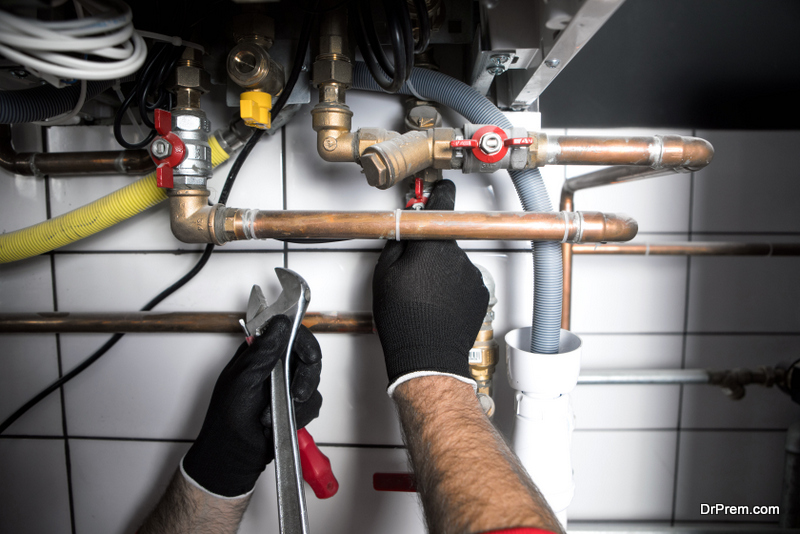
Before repiping your house, take the time to gather a handful of different opinions and quotes from qualified professionals. Three quotes is the minimum recommendation, as this allows you to develop a genuine understanding of the market and what sort of services come at which price points.
As you vet and compare plumbing services, consider experience, professionalism, warranties, licensure/insurance, etc. This isn’t a minor project like unclogging a toilet. Repiping a house is a major project that requires the right personnel.
Make sure you’re working with a plumbing service that has your best interests in mind.
Article Submitted By Community Writer


